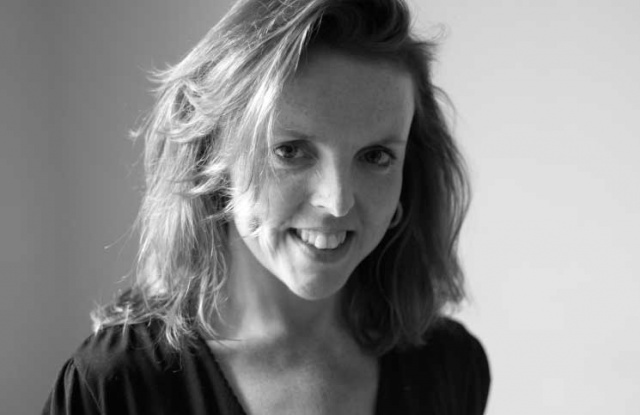Alice Peterson – Bittersweet Rebirth
Life-changing illness can strike at any time and often with very little notice. For Alice Peterson, a promising career as a tennis pro was brought to an abrupt conclusion when she was diagnosed with rheumatoid arthritis. Undeterred she channelled her pain and disappointment into writing and is now a successful author whose latest book A Song For Tomorrow was released this month. We caught up with her to find out more about her story.
The dreams we have growing up don’t always materialise as adults. Those that achieve their ambitions often do so through application, determination and a degree of good luck. For Alice Peterson, the reality was slightly different.
“From the age of 11 tennis was everything to me,” she admits as we open the conversation around her formative years. “It was my world and the only thing I wanted to do when I grew up.”
Living in London, Alice trained as a pro-tennis player on the junior circuit and quickly rose up the ranks of her age group.
“I worked hard for it but I wanted it so much it never seemed like hard work. I made it into the top 10 players under 18 in the UK and I won a spot at a Virginia college in the US, which is where most tennis players end up going to further their training. Life couldn’t have been any better for me.”
Which is cruelly ironic when considering what happened next…
“Literally overnight – and I mean it in the truest sense of the expression – I woke up on the day of my 18th birthday with pains in my hands. At first, I thought nothing of it and put it down to the rigours of training. Then the pain moved to my feet. I started to get anxious. I’d never had any type of sports injury before but I continued to believe it was just a temporary condition.
“I completed my A-Levels and, as was required by all US tennis academies, I prepared a video presentation about myself to accompany my scholarship application.”
With her submission sent and her exams finished, Alice was still suffering from pain in her joints and sought further medical advice.
“There were consultations and tests but all the time I believed it was going to pass. The diagnosis came back as rheumatoid arthritis. Still, I thought they would be able to cure it. It wasn’t to be. The day my doctor told me I would never play tennis again was a truly shattering experience. I felt as though a part of me ceased to exist.
“You can never prepare for news like that but the speed of my decline was frightening and to this day, knowing that I can never do something that I used to do every day and was good at it, still hurts.”
For Alice, the pain was not just emotional and the physical setbacks were immense.
“My body felt like it was going into a complete shutdown. I underwent more intensive treatment and was told I had the illness in its severest form. My days were spent in and out of the hospital, supported by a cocktail of drugs and countless therapy sessions.”
Despite all the family and medical support, Alice admits it took her a very long time to come to terms with her illness and life for quite a few years was like “living in a fog”.
“I was down but I knew I had to keep going. My life wasn’t over, just different. I went to Bristol University to study French and History of Art and continued with counselling, which helped me down the path of acceptance.”
Following university, Alice returned home but she was still at a low ebb.
“University certainly changed my life and I could feel things were improving but after completing my degree I needed a sense of direction.”
After speaking with a family friend, Alice was convinced to start writing her feelings down and eventually to develop them into a story.
“We met once a week and the more I opened up and found confidence in my writing the more everything started to flow. Eventually, I approached an agent and not too long after that my first book “Another Alice” made it onto the shelves.”
Subsequent books have followed and Alice made a conscious decision to continue writing books that would highlight disability in some form. Her latest book is based on a young singer named Alice Martineau.
Alice Martineau was a talented, London born model who had a brief career as a singer-songwriter in her late twenties. Born with cystic fibrosis, she battled against the debilitating factors of the illness to release an album in 2002 but after being on a waiting list for a life-saving triple transplant that never happened she passed away at home in 2003.
“I first heard about Alice in March 2002 following an article in a weekend magazine and I was inspired by her. I never got to meet her but when I decided to use her as the inspiration for my latest novel I contacted her family because there were many parallels I saw with her story and my own. The book also incorporates Alice’s music from her album Daydreams as I am a big fan of her work.”
So, when she looks back on her life to date does she have any regrets?
“None whatsoever. I was lucky, no matter how briefly, to enjoy my tennis as a young girl and whilst I was never able to properly fulfil my potential in the sport, I have found a new passion with my writing. The life of an author can be a lonely one and there is a great deal of self-motivation required because you often have no one else to bounce ideas off. My resilience and determination were probably heightened by what I had to go through with my illness and I have worked hard to manage those moments.”
Reflecting upon Alice’s story the publishing of her first book seems to me to represent a pivotal moment in her life and I am reminded of a quote by D.H. Lawrence: ‘Tragedy is like strong acid – it dissolves away all but the very gold of truth’.
Many people would have understandably been crushed by seeing their career path so quickly and dramatically destroyed. To overcome double adversity and then turn those challenges into positives epitomises all that is progressive about the human spirit and represents another example of why there are still good stories worth talking about in the world.
If you would like to discover more about Alice Peterson then visit her website here.
George R Vaughan


